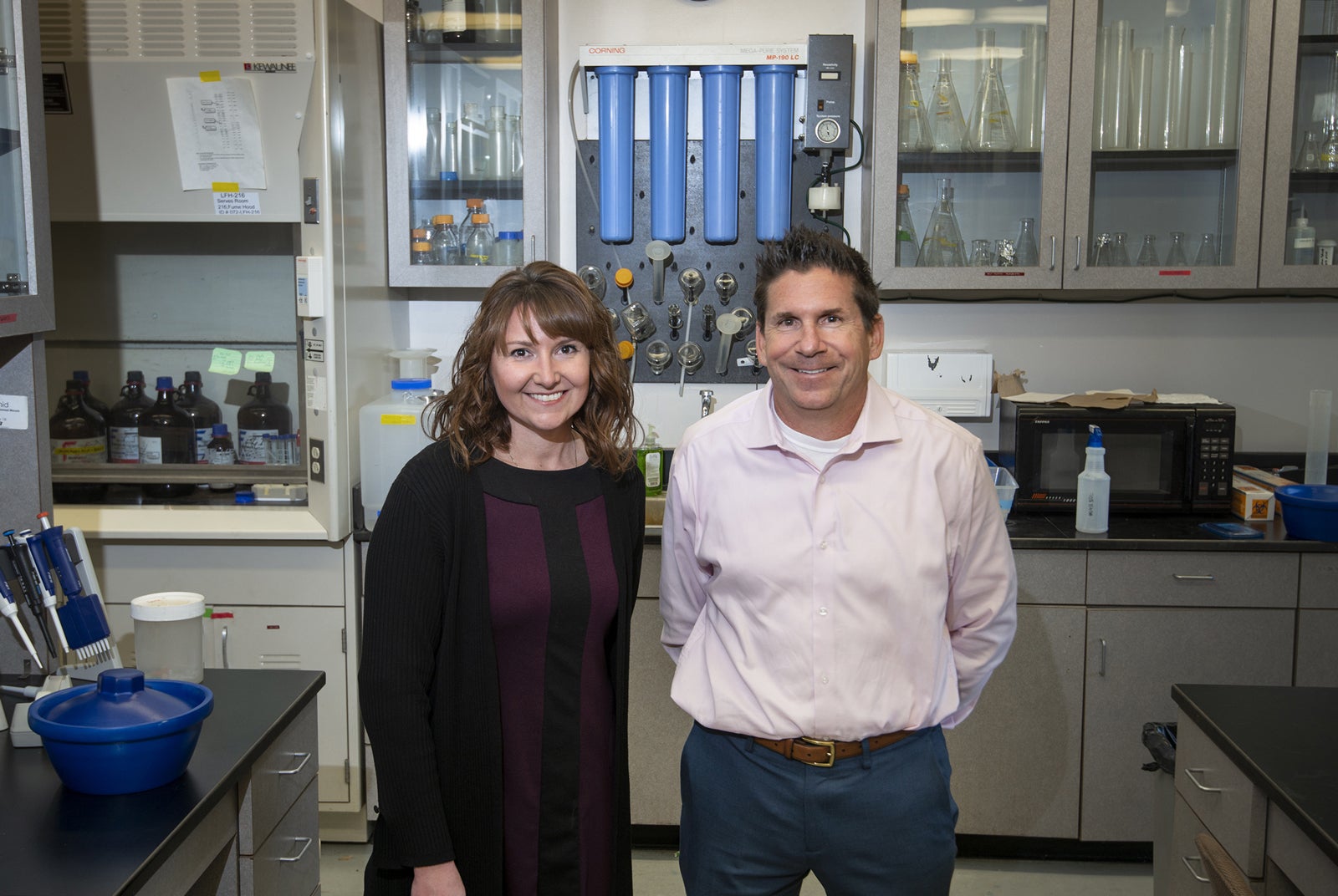
Alzheimer’s Disease, the progressive neurodegenerative disorder that causes dementia in older adults, is the third leading cause of death in the U.S. behind heart disease and cancer, according to the Centers for Disease Control. As our populations live longer, the number of people living with Alzheimer’s is predicted to rise to 16 million by 2050.
The disease will hit people in Idaho especially hard. The CDC predicts the state will see a 44 percent increase in Alzheimer’s by 2025, the fifth highest increase in the nation.
To address this growing epidemic, Boise State University researchers launched the Alzheimer’s Disease Initiative in winter 2018, which will offer free genetic testing and counseling to the community for those who meet specific requirements.
“Through our interactions with numerous people over the years in the Treasure Valley, we feel there is a great need to provide unmet services to our community,” said Dr. Troy Rohn, a biology professor who has specialized in Alzheimer’s research for more than 20 years.
Rohn, along with Boise State genetic counselor Jennifer Eichmeyer and Dr. Stephanie Hall, an assistant professor of kinesiology, hope to explore the relationship between genetic makeup, memory and cognition performance in healthy adults and those with dementia. They also will explore whether healthy behaviors improve specific serum biomarkers of brain health, or performance on memory and cognition tests.
“Currently, the protective effects of exercise on individuals who may be susceptible to dementia is undeniable. However, the mechanisms are poorly understood,” said Hall. “We hope this study will provide important data to support the positive role that exercise has on brain health.”